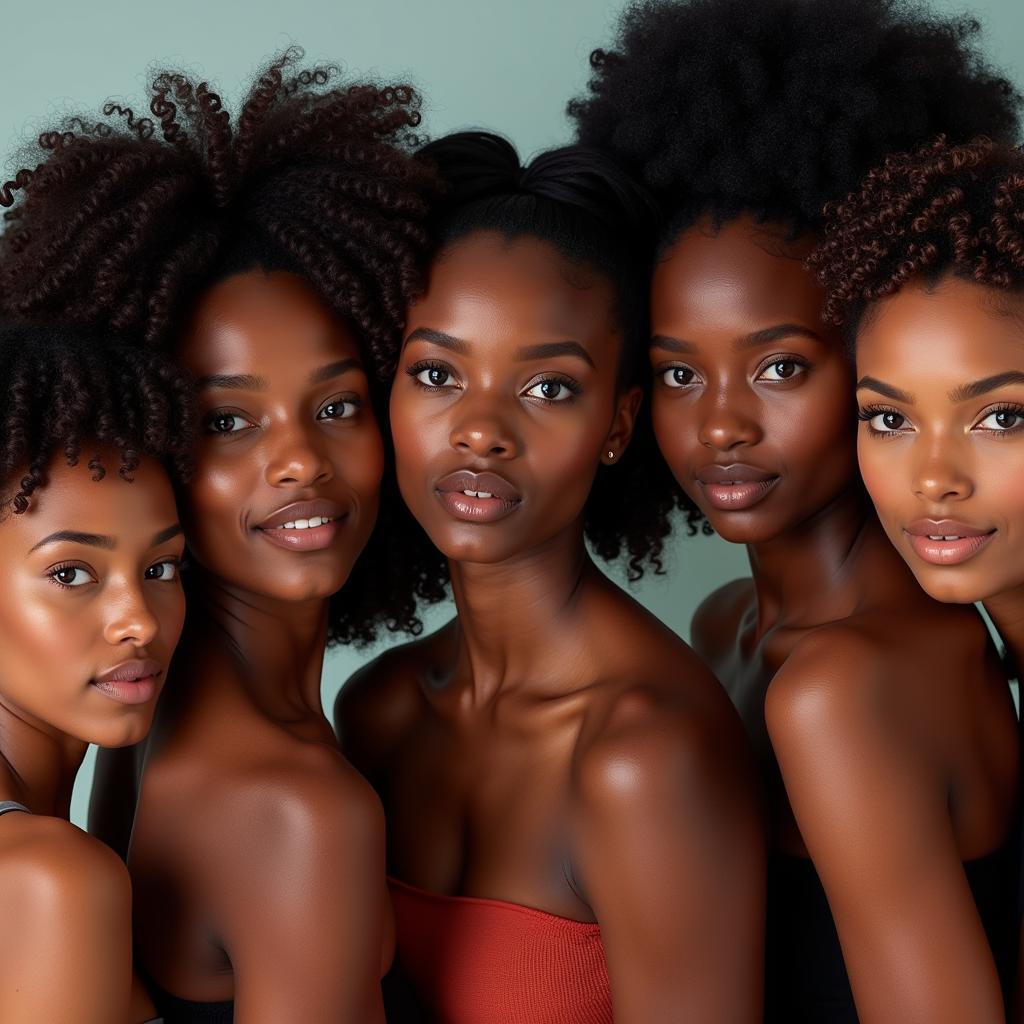The African Cichlid Tank: Temperature Guide for Success
African cichlids, with their vibrant colors and unique personalities, are a popular choice for freshwater aquarists. But keeping these fish healthy and happy requires careful attention to their environment, including water temperature. So, what’s the ideal temperature for an African cichlid tank? Let’s dive in and discover the key factors to consider.
African Cichlid Tank Temperature: Finding the Sweet Spot
Most African cichlids thrive in a specific temperature range, typically between 78°F and 82°F (25.5°C to 28°C). This range is crucial for their metabolism, growth, and overall health. However, it’s essential to understand that this is just a guideline, and different species may have slightly different temperature preferences.
Understanding Temperature Preferences
“African cichlids” is a broad term, encompassing a wide variety of species originating from different parts of Africa. Each species has its own unique characteristics and needs.
Malawi Cichlids
These cichlids, known for their stunning colors and aggressive nature, prefer slightly warmer temperatures, around 80-82°F (26.5-28°C).
Expert Tip: “Maintaining the right temperature for Malawi cichlids is essential for their breeding success. These fish are more likely to spawn at temperatures around 82°F. – Dr. Benjamin Mwangi, Marine Biologist
Tanganyika Cichlids
This group of cichlids, with their complex social hierarchies and fascinating feeding habits, tend to prefer a slightly cooler temperature range, ideally 78-80°F (25.5-27°C).
Expert Tip: “Tanganyika cichlids are more sensitive to temperature fluctuations. Sudden temperature changes can cause stress and even disease. – Dr. Sarah Kibwana, Fish Health Specialist
Victoria Cichlids
Victoria cichlids, known for their diverse color patterns and intriguing adaptations, generally fall within the same temperature range as Malawi cichlids, around 80-82°F (26.5-28°C).
Expert Tip: “Victoria cichlids are incredibly diverse, so it’s important to research the specific species you’re keeping to determine their ideal temperature range. – Dr. Peter Mwanza, Ichthyologist
Factors Influencing Temperature Selection
While the general temperature range is a good starting point, other factors can influence the ideal temperature for your African cichlid tank.
Cichlid Species
As mentioned earlier, different cichlid species have different temperature preferences. Researching the specific species you intend to keep is crucial.
Tank Size
Smaller tanks can experience more significant temperature fluctuations. Larger tanks offer better temperature stability.
Heating Equipment
The type and size of your heater will determine how effectively it can maintain the desired temperature.
Room Temperature
The ambient room temperature can also influence the tank temperature. A warm room might require a less powerful heater.
How to Maintain the Right Temperature
Keeping your African cichlids at the ideal temperature is vital for their health and well-being. Here are some key steps:
- Use a Reliable Heater: Invest in a submersible heater with an adjustable thermostat. Choose a heater suitable for the size of your tank.
- Choose the Right Heater Size: Ensure the heater has enough wattage to maintain the desired temperature. You can find charts online that recommend wattage based on tank size.
- Monitor Tank Temperature: Regularly check the water temperature with a thermometer to ensure it remains within the ideal range.
- Consider Room Temperature: Adjust the heater accordingly if the room temperature fluctuates significantly.
- Avoid Sudden Changes: Gradual temperature changes are best. Avoid abrupt shifts in temperature, as this can stress your cichlids.
Signs of Incorrect Temperature
Pay attention to any unusual behavior or physical changes in your cichlids, which may indicate a temperature problem.
Increased Respiration
If your cichlids are breathing rapidly, it could be a sign that the water is too warm.
Loss of Appetite
Cichlids may refuse food if the temperature is too high or too low.
Lethargy
If your cichlids are sluggish or inactive, it might be a sign of temperature stress.
Color Fading
Some cichlids may lose their vibrant colors if the temperature is not optimal.
FAQ (Frequently Asked Questions)
Q1: What happens if the water temperature is too high?
A: High temperatures can lead to stress, reduced oxygen levels, and increased susceptibility to diseases.
Q2: What happens if the water temperature is too low?
A: Low temperatures can slow down metabolism, weaken the immune system, and make your cichlids more vulnerable to infections.
Q3: Can I use a room heater to warm my tank?
A: It’s not recommended. Room heaters can dry out the air, which can negatively impact your tank environment.
Q4: How often should I check the water temperature?
A: At least once a day, especially during temperature changes or if you’re using a new heater.
Q5: What should I do if the temperature fluctuates significantly?
A: Invest in a more powerful heater or consider a tank heater with a built-in thermostat.
Q6: Can I use a fan to cool down the tank?
A: Yes, a fan can help to lower the temperature, but ensure it’s not directly blowing on the water surface to avoid evaporation and changes in water parameters.
Q7: Is it necessary to have a thermometer for my tank?
A: Yes, a thermometer is essential for monitoring the water temperature and ensuring it’s within the ideal range.
Final Thoughts:
Maintaining the right temperature for your African cichlid tank is crucial for their health and well-being. By understanding the temperature preferences of your specific species and following the tips outlined above, you can create a thriving environment for your colorful and energetic African cichlids.
If you’re unsure about anything, it’s always best to consult with an experienced aquarist or your local pet store.
For any further assistance or queries, feel free to contact us.
Phone: +255768904061
Email: kaka.mag@gmail.com
Address: Mbarali DC Mawindi, Kangaga, Tanzania.


